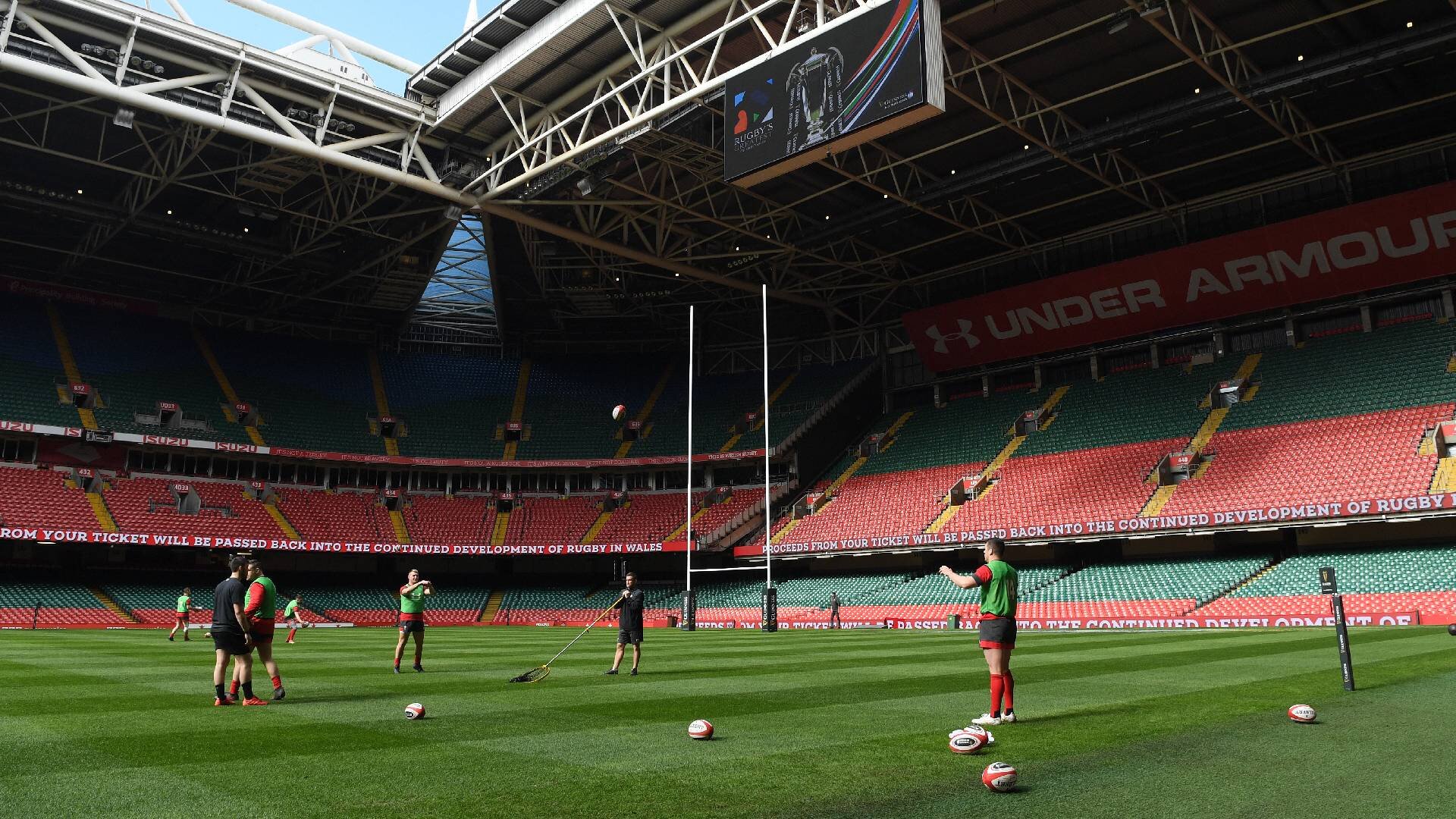World Rugby suggest it may be a long wait before fans are allowed back in stadiums

Rugby is facing a devastating financial blow after medical guidelines released by the sport’s governing body stated matches should be played behind closed doors until a vaccine exists for Covid-19.
With England’s Rugby Football Union already projecting to lose £50 million because of the pandemic, the prospect of the long-term absence of large-scale crowds from major venues would plunge the sport in England – and across the world – into crisis. It is expected that it could be up to 18 months before a vaccine is freely available.
And the difficulty of even returning behind closed doors was also laid bare in the report, which stated that upon returning for training players will initially need to observe social distancing of 1.5 metres, wear gloves and face masks, and refrain from making any physical contact such as hugging or handshakes.
All players will also be asked to fill in a daily questionnaire for symptoms of Covid-19 and will be required to have their temperature checked before entering the clubhouse or training facility. Anyone with a temperature higher than 37.5 centigrade will be sent home.
New Zealand Rugby chairman Brent Impey said yesterday that he had hopes of a return to action with New Zealand’s five Super Rugby teams in mid-June but was waiting on government guidelines to be revealed under Level 2 before they could make a decision.
In the UK, Premiership Rugby’s ambition of staging the remainder of the 2019/20 season in the middle of the year also appeared to recede after World Rugby advised that competitive rugby should not resume until national governments allow public gatherings of up to 250 people.
UK Prime Minister Boris Johnson has said that phase two of the Government’s coronavirus strategy will be announced next week, which is likely to be limited to small social gatherings.
Compiled by medical experts Éanna Falvey, Prav Mathema, Mary Horgan, Martin Raftery, the World Rugby guidelines are being issued to all unions who are expected to create a framework for a return to play in conjunction with their own government’s advice on Public Gathering Restrictions, Social Distancing, Travel Restrictions (PST). This will then be passed to all clubs, amateur and professional.
Under World Rugby’s projection, “normal competition” would not resume until after a vaccine has been introduced.
The first stage would be a return to rugby training. Even then training would be staggered between groups of five or ten players, depending on government advice, who should be assigned their own specific coach to avoid overlap between groups.
The guidelines state: “Where possible, all players and staff should wear face masks to prevent possible spread from asymptomatic, infected players.” Players are also advised to travel alone to and from training and should shower and eat at home.
Clubs will also be required to conduct a deep clean after each session. “Facilities would remain unavailable until cleaning can be completed.”
The next stage would be for full squad training once respective governments allow gatherings of up to 50 people. However, full-contact training should be planned in consultation with local public health authorities and will need PST to allow “close contact” or a specific Government exemption. Unions and clubs will need to demonstrate an ability to “comprehensively screen, test and contact trace”to reach that stage.
https://www.instagram.com/p/B_wM9FpA48p/
World Rugby are conscious that coaches may be tempted to ignore or bypass their advice warning: “Your actions will speak far louder than words, and will affect the health of yourself, your family, colleagues and friends. For coaches, the temptation to progress beyond the measures permitted will be an issue.”
World Rugby recommends that competitive matches should only resume once there is an agreement between union, clubs, competition organisers, coaches and players. Unions are advised to appoint a Covid-19 Manager to present the return to training and matches with the government and manage the communication across the clubs and competitions. The manager will also be asked to conduct a risk assessment for when matches can resume.
Those first matches are “likely to be over short distances” and will not include overnight stays. Players are advised to travel individually by car. Once competitive rugby successfully resumes within a country then international rugby could take place providing the countries share “relaxed border control measures”.
The prospect of England hosting southern-hemisphere countries later in the year appears remote with trans-continental matches appearing as the penultimate stage of rugby’s return to normal competition. That means the All Blacks highly-anticipated clash with England, their first meeting since the World Cup, would be cancelled.













































